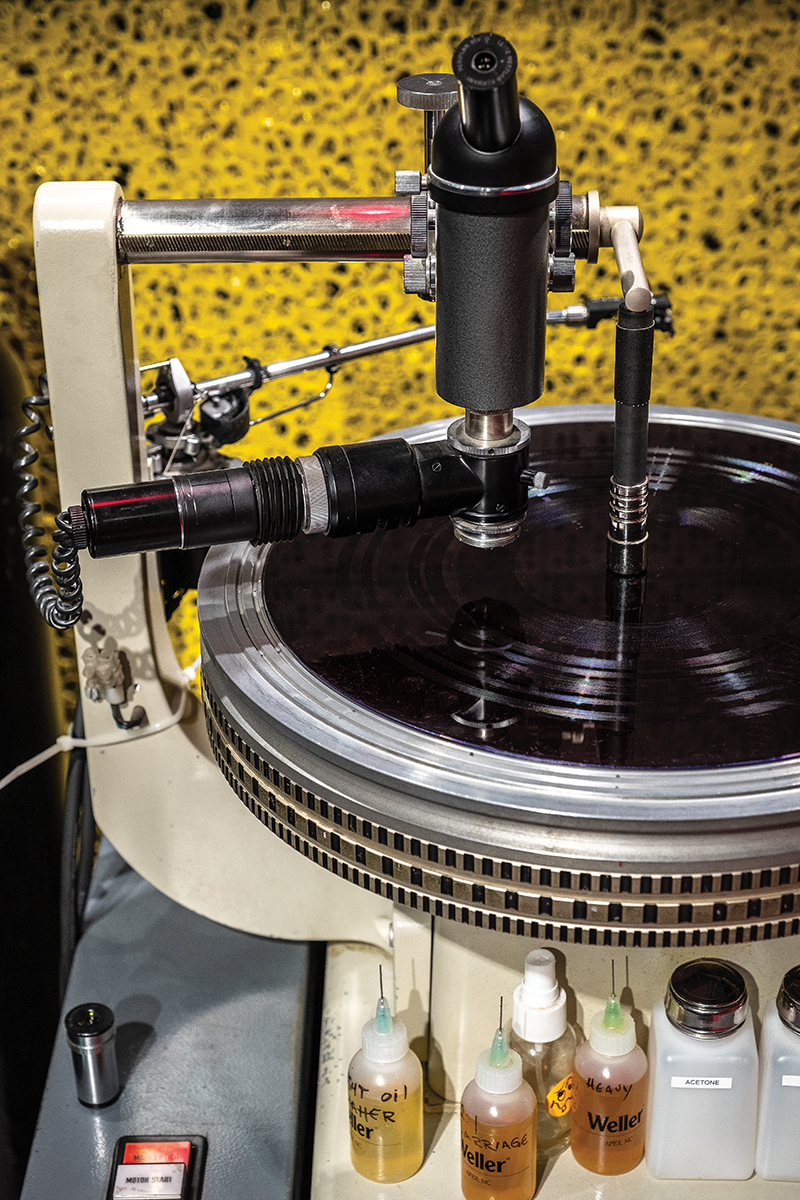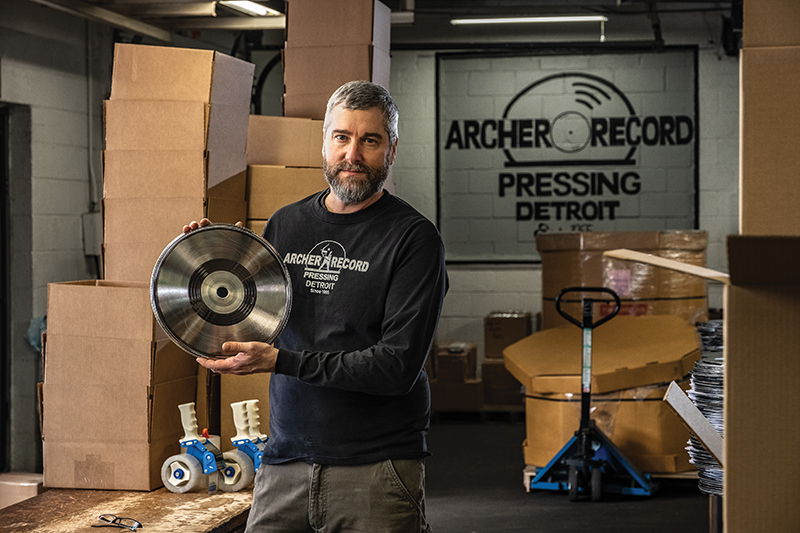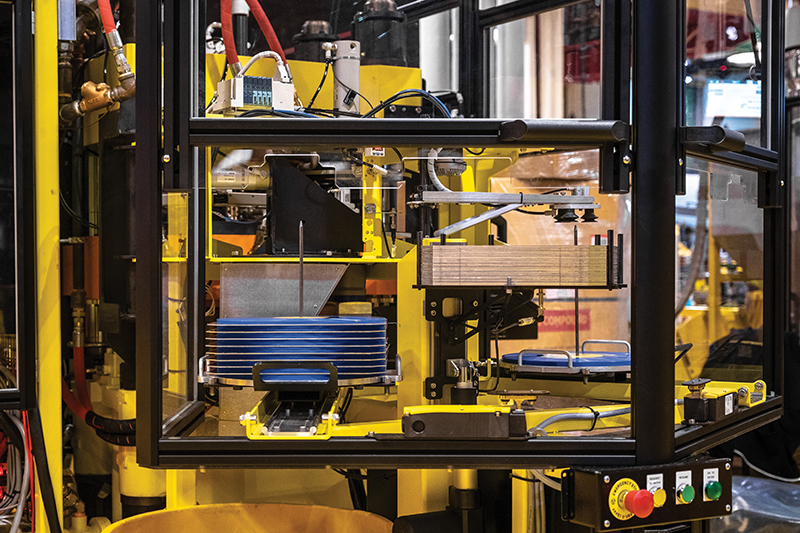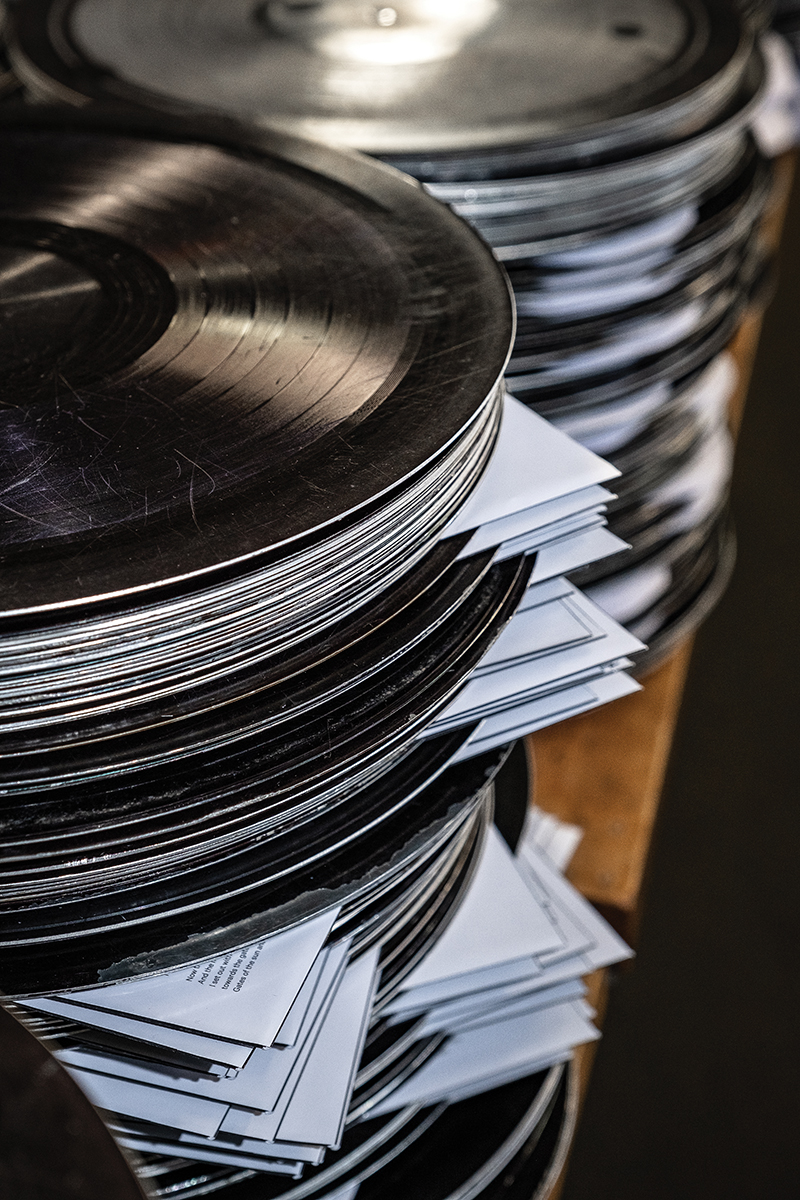
live recordings.
About six years ago, Ben Blackwell of Third Man Records rang up Mike Archer to ask for his blessing. Blackwell, the nephew of The White Stripes frontman Jack White and co-founder of their record label, thought it courteous to give Archer, owner of a legendary vinyl record press on Detroit’s East Side, a heads-up that Third Man wanted to open a press of its own in the trendy, resurgent Cass Corridor. “You certainly didn’t need to tell me, but it was really, really honorable that you did,” Archer replied. “I’m turning away business now on my end anyway, so it’d be rich of me to say you shouldn’t do it. I’ve got more business than I can handle.”
The idea that anyone would want to open a new vinyl record manufacturing plant in this century would have seemed absurd to Archer back in 1994 when his father strong-armed him into taking over the family business. Archer got into the business out of obligation but figured he’d be presiding over the inevitable demise of the company his grandfather founded in 1965, given the rapid changes in music industry technology. “I didn’t think it was a viable business,” Archer recalls. “This was the early ’90s, and I was buying CDs like everybody else. I didn’t really take it too seriously.”
Obviously, Archer was quite wrong, and now, five years after Third Man opened its factory, Detroit is the only city in America with two thriving vinyl presses. The vinyl industry itself is nothing like what it was when black plastic discs were the dominant form of music delivery and massive plants churned out hundreds of thousands of records a week, but the renewed popularity of the old-timey medium as a curiosity object and cultural status symbol has provided both a stable livelihood for a small plant like Archer and a fresh opportunity for the likes of Blackwell and White.

Archer survived into the new millennium on the strength of demand for vinyl for beat-matching in the hip-hop world and for playing by DJs in the dance-club scene, never imagining that by 2020 vinyl records would again outsell CDs for the first time since 1986. Still, to keep the “boom” in perspective, top acts like Harry Styles and Billie Eilish, who release 12-inch versions of their albums simultaneously with their online drops, sometimes sell more than 100,000 copies — versus millions back in the record heyday. Streaming remains the dominant form of music release, accounting for roughly 80% of the market.
“I’ve seen people that have never seen a record played before; they are just shocked that ‘Oh, my God, this, this thing actually works,’” says Archer, 55. “They can see the grooves, they can put the needle down and actually see it playing, and they think it’s the coolest thing. That’s who’s buying vinyl — it’s the people that are [in their] 20s, maybe 30s. It’s the young kids, mostly.” Blackwell sees a slightly broader clientele, but agrees about the motivation for the interest: “If you have a shelf full and a turntable, the popular opinion is that says … you care about music. It’s modern shorthand for ‘I am creative.’”
The two businesses physically reflect the times and industries in which they were born. Archer has a cramped 2,500 square feet with four clanking gray metal machines, sooty whitewashed walls, random stacks of product, and parts strewn about under ungainly fluorescent fixtures. “It’s not glamorous; it’s manufacturing,” shrugs Archer, who works alongside two employees to crank out about 2,500 records in an eight-hour shift five days a week. The only people who come by to watch the process are, sometimes, the musicians themselves.
Third Man, by contrast, offers 10,000 square feet of gleam and splendor, bold colors and antiseptic tidiness, and a vast factory floor that spotlights the 12 presses and their operators the way some modern restaurants showcase their kitchens. It is fronted by a 4,000-square-foot retail space where visitors can cut their own records in a Coney Island-style booth and buy $48 T-shirts, $650 box sets, and $125 electric guitars for kids. A few storefronts down is a Shinola store where high-end turntables sell for $2,500 a pop. Third Man also has a recording studio and the ability to cut the masters for the vinyl record. Tours are available two Saturdays a month for $15 a ticket.

“What’s going on over there at Third Man, no pressing plant in the country looks like that,” Archer says with admiration. “That’s not normal. This is more normal. I mean, good for them. Most pressing plants don’t have cutting studios. Cutting and pressing are usually two separate skill sets and two separate operations.”
The process itself, of course, is the same in both places. An operator first feeds a mountain of rice-sized bits of black plastic into a chamber that heats it up and serves it back as a 300-degree cylinder twice the width of a hockey puck. The cylinder is placed between two silver plates, and, like a huge, round panini machine, the plates squeeze the two sides together. The black — or sometimes specially colored — plastic spreads out, is shoved inside another oven for about a minute, and then is cooled. It is a strangely hypnotic, elemental process, whether it’s for Archer’s salt-of-the-earth indie clients or Third Man’s reissues of the likes of Roy Orbison, Elvis Presley, Johnny Cash, and Loretta Lynn. “I cannot help but be struck with reverence for the process and the form,” Blackwell says.
Third Man, which is headquartered in Nashville, views the Detroit location — three blocks from where White went to high school and a block from where he performed his first show — as a new revenue stream. About half the records pressed there are for-hire jobs. “If, for some reason, demand for our Third Man Records disappeared overnight, there would still be people who need to press records,” Blackwell says.

Despite the much-touted vinyl revival, there are only about two dozen presses left in the U.S. — many labels outsource to European presses that are cheaper but also often of inferior quality — so industry shifts have a huge ripple effect. In January, when 80-year-old Rainbo Records in Canoga Park, California, shut down after its landlord refused to renew its lease, both Third Man and Archer were flooded with calls. Archer generally doesn’t accept new customers unless they’re from Michigan, so he turned those inquiries over to Third Man.
“If I start taking on too much business, then my current roster of customers are going to get worse service,” Archer says. He refuses to scale up the business to more than one shift a day — despite the rising demand — because he doesn’t want to add more hours to his own workweek or diminish quality.
While Archer is, in some ways, a grizzled veteran of an industry he didn’t really want to get into in the first place, he admires Third Man’s efforts and credits White’s evangelism for the medium for helping to keep his operations afloat. “He’s actually helped the whole industry, quite honestly.”
The admiration is mutual. “We’ve been customers of Archer,” Blackwell says of the The White Stripes. “In my spare time, what I like to do is I like to find old records pressed at Archer and archive them and make lists of them. That’s what I do for fun.”
Inside Third Man pressing’s modern Detroit facility
The old ways still works at Archer Record pressing
|
|
|

















